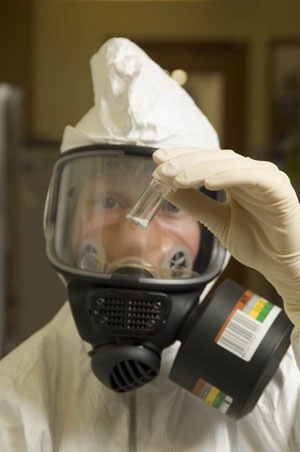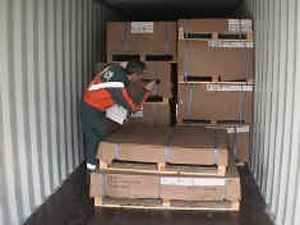Biosecurity Officer
Tasks & duties

Biosecurity officers may do some or all of the following:
-
inspect and monitor plants, land and water for pests
-
advise landowners to destroy pests and check that they are complying with their legal obligations
-
remove and destroy pests, or arrange for them to be removed and destroyed by pest control technicians
-
carry out control work on surveillance plants
-
gather data from experimental eradication projects
-
educate the public about animal and plant pests and how to control them
-
prepare reports or charges against any law breakers
-
testify in court
Specialisations
-
Biosecurity officers working for the Ministry of Agriculture and Forestry deal with pests entering New Zealand.
-
Biosecurity officers working for regional councils deal with pests already established in New Zealand.
Skills & knowledge
Biosecurity officers need to have:
-
knowledge of harmful plants and animals

-
knowledge of pest plants and animals in their region and the strategies used to eliminate them
-
knowledge of pesticides
-
an understanding of property and animal laws
-
good oral and written communication skills
-
negotiation skills
-
good organisational skills
-
decision-making and problem-solving skills
-
basic computer skills
Entry requirements
To become a biosecurity officer, you usually need a Bachelor's degree in botany or zoology. A Master's degree in ecological science or environmental science is often preferred. A postgraduate diploma in biosecurity is useful.
You also need to have a current driver's licence. A motorcycle licence might also be required.
Secondary education
There are no specific secondary education requirements to become a biosecurity officer, but Sixth Form Certificate or NCEA equivalent is preferred.
Useful subjects include science and horticulture.
Training on the job
Many skills are gained on the job, and biosecurity officers may do correspondence courses to further their skills.
Some employers may encourage or make it compulsory for biosecurity officers working with pest plants to get a GROWSAFE Certificate or National Certificate in Compliance and Regulatory Control (Pest Plant Control), to ensure staff health and safety while using toxic chemicals in herbicides.
Similarly, officers using poison for animals usually do related health and safety training.
Useful experience
Useful experience for biosecurity officers includes:
-
farm work
-
plant nursery work
-
work with animals
-
laboratory or scientific work
-
work involving contact with the public
Video
From careersnz on you tube
Related courses
Pest and Weed Control
Veterinary Assisting
For more information, please refer to Career Services.
Document Actions
